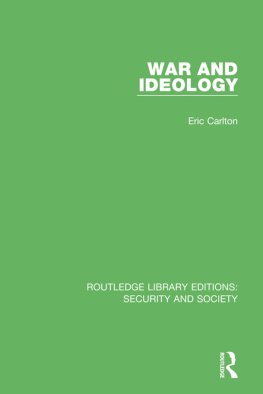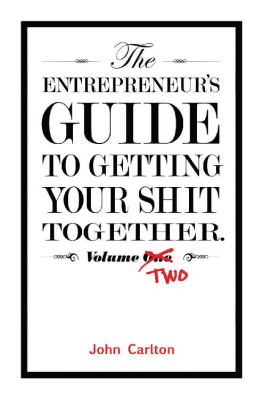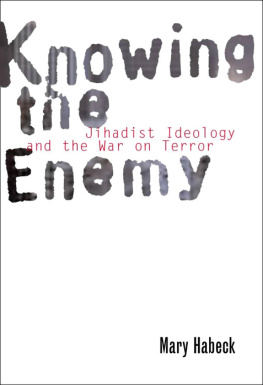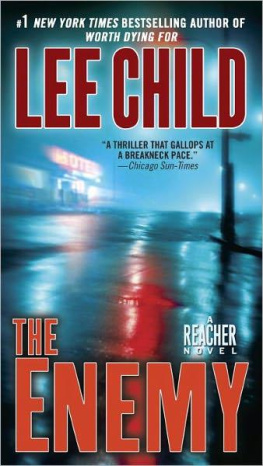ROUTLEDGE LIBRARY EDITIONS: SECURITY AND SOCIETY
Volume 4
WAR AND IDEOLOGY
WAR AND IDEOLOGY
ERIC CARLTON
First published in 1990 by Routledge
This edition first published in 2021
by Routledge
2 Park Square, Milton Park, Abingdon, Oxon OX14 4RN
and by Routledge
52 Vanderbilt Avenue, New York, NY 10017
Routledge is an imprint of the Taylor & Francis Group, an informa business
1990 Eric Carlton
All rights reserved. No part of this book may be reprinted or reproduced or utilised in any form or by any electronic, mechanical, or other means, now known or hereafter invented, including photocopying and recording, or in any information storage or retrieval system, without permission in writing from the publishers.
Trademark notice: Product or corporate names may be trademarks or registered trademarks, and are used only for identification and explanation without intent to infringe.
British Library Cataloguing in Publication Data
A catalogue record for this book is available from the British Library
ISBN: 978-0-367-56733-0 (Set)
ISBN: 978-1-00-312078-0 (Set) (ebk)
ISBN: 978-0-367-60919-1 (Volume 4) (hbk)
ISBN: 978-1-00-310256-4 (Volume 4) (ebk)
Publishers Note
The publisher has gone to great lengths to ensure the quality of this reprint but points out that some imperfections in the original copies may be apparent.
Disclaimer
The publisher has made every effort to trace copyright holders and would welcome correspondence from those they have been unable to trace.
WAR AND IDEOLOGY
To the specialists and staff of the Cardiothoracic Centre at the Freeman Hospital, Newcastle, without whose care and expertise this book would never have been completed.
WAR AND IDEOLOGY
Eric Canton
First published 1990
by Routledge
11 New Fetter Lane, London EC4P 4EE
1990 Eric Carlton
Set in 10/12pt Palatino by
Input Typesetting Ltd, London
and printed in Great Britain by
TJ Press (Padstow) Ltd, Padstow, Cornwall
All rights reserved. No part of this book may be reprinted or reproduced or utilized in any form or by any electronic, mechanical, or other means, now known or hereafter invented, including photocopying and recording, or in any information storage or retrieval system, without permission in writing from the publishers.
British Library Cataloguing-in-Publication Data
Carlton, Eric
War and ideology.
1. War. Sociological perspectives
I. Title
303.66
ISBN 0415041570
The subject of war lends itself to a variety of possible treatments. So much depends upon the required emphasis of the research in question, whether it is to be primarily historical or social and economic, or whether it has to include more abstract philosophical elements. In the past, it has often proved helpful to take a great-battles-of-history approach by tracing chronologically the key conflicts that have occurred in, say, the last two thousand years. This kind of treatment is popular and reasonably uncomplicated but it makes the study of war necessarily selective. It begs the question: by what criteria does one decide what is great as opposed to the not so great, or identify the decisive as distinct from the not so decisive. Alternatively, one could adopt a more analytical patterns-of-conquest approach which attempts a categorization of the nature and methods of military expansionism. This can be extremely useful, but its weakness is that it tends to concentrate almost exclusively on predatory societies, and does not give enough attention to those societies that cannot be neatly pigeon-holed in this all too convenient way.
The present study is a little more oblique. It is concerned with analysis and categorization, but it is also interested in motivation and interpretation. It asks the question: why do men have recourse to war to solve their socio-economic problems? It thus relates war to ideology, and takes as its sine qua non the proposition that men act as they think, and think as they believe, and that belief religious or otherwise conditions attitudes to the nature and conduct of war. It argues that various constellations of values often intellectualized as ideologies not only constitute the rationalizations and justifications for war, but may also provide the actual imperatives for warfare itself.
It is assumed that one of the best ways of doing this is to examine war and ideology in the context of what is believed to constitute the enemy. Perceptions of the adversary, possibly more than anything else, determine the nature as opposed to the fact of warfare. And it is also taken as a basic presupposition that this discussion can be most instructive if it is conducted in a historical and comparative setting. This means that the text has to include extensive substantive material as well as theoretical analysis. It should, therefore, be suitable for students of both history and sociology, as well as those who are specifically engaged in war studies. As such, it is intended to be scholarly without being intimidating.
The work is thus organized in four unequal portions. concludes the study with an examination of War and the problem of values; this rounds off the discussion by drawing together the threads of the prior arguments and reaffirming the relationship between war and ideological belief and commitment.
At the most elementary level, war is a problem simply because most of us would like to know how it can be avoided. But it is a problem in other senses as well. At a theoretical level it raises all sorts of supplementary issues, and it is these which constitute the basis of our initial discussion. Most societies have persistently resorted to violent solutions to their political-economic problems. And this has not always been in moments of desperation. There have been exceptions, but as we shall see these have been extremely rare; so rare, in fact, that the phenomenon of seeking peaceful solutions to such problems is itself in need of explanation.
Why then do men go to war? Are they basically competitive and self-seeking, with war as an institutionalized outlet for their aggressive instincts? Or is war a cultural invention rather than a biological necessity? Complementarity, why do societies go to war? Are the reasons rooted in the human psyche and its personal motivations, or should we be looking rather to historical situations of need and scarcity for an explanation? In these circumstances, the answer to war may be seen in terms of social change, in the outlawing of classes and the more equal distribution of goods.
Underlying all these issues are yet further questions concerning the inevitability of war and the possibility of its elimination as a barbarous extension of political endeavour. But there are no simple answers. All these matters require careful analysis and exemplification, so in the ensuing discussion, the treatment will be both comparative and historical in order to show something of the wide diversity of human conduct in relation to the nature and conduct of war. The object is not necessarily to detail particular campaigns or probe the natures of would-be conquerors and political personalities, but to investigate the ostensible causes of human conflict and the ways in which these are then rationalized and justified. This will entail a preliminary analysis of the theories which are commonly adduced to explain the phenomenon of war and its implications.










